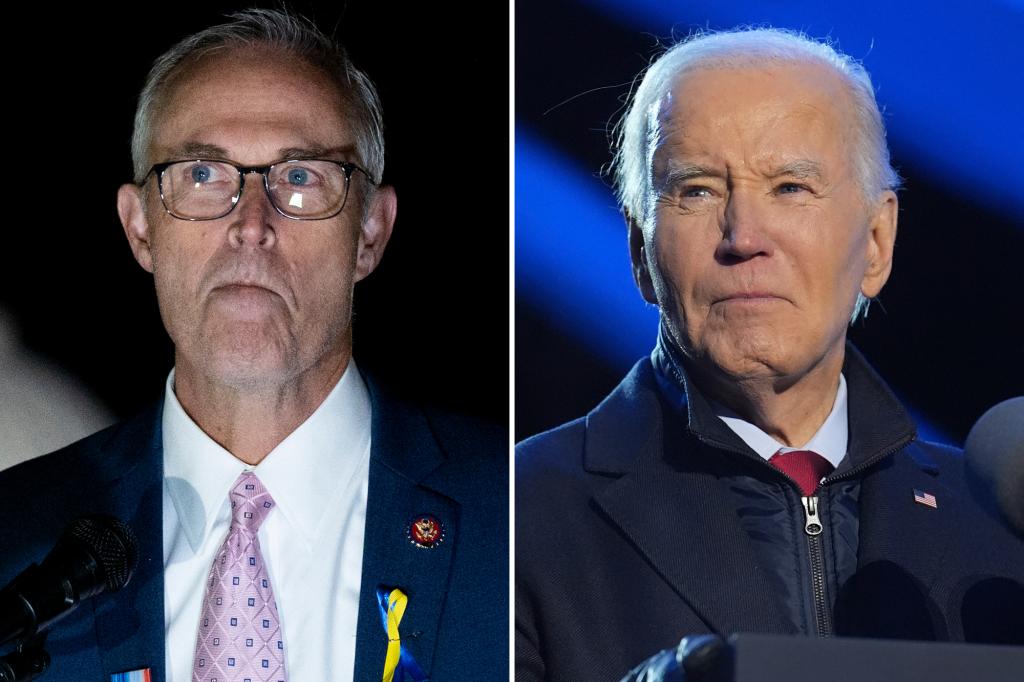The 2024 election cycle resulted in a stinging defeat for the Democratic Party, losing both the White House and the Senate. Rep. Jared Huffman (D-Calif.) has been vocal in his criticism of the party’s strategy, placing significant blame on President Biden’s decision to seek re-election. Huffman argues that Biden’s age and declining performance, particularly evident in his debate against Donald Trump, should have been recognized as disqualifying factors much earlier. He contends that the party’s reluctance to confront this reality, potentially fueled by misplaced loyalty and good intentions, ultimately hampered their chances. The decision to support Biden’s candidacy, Huffman asserts, set the Democrats back significantly and contributed to their eventual defeat. This sentiment has been echoed by other prominent Democrats, including former House Speaker Nancy Pelosi, who believe Biden should have either declined to run or withdrawn his candidacy sooner.
Huffman’s critique extends beyond Biden’s candidacy to encompass the party’s overall messaging and handling of key economic issues. He highlights the administration’s initial dismissive response to rising inflation, labeling it “transitory,” as a critical misstep. This, he argues, damaged the party’s credibility on an issue that resonated deeply with voters and likely played a significant role in the election outcome. By the time the administration acknowledged the seriousness of the problem, Huffman believes, it was too late to regain the trust of voters struggling with rising costs. This failure to address economic anxieties effectively left an opening for the opposition to capitalize on and ultimately contributed to the Democrats’ losses.
The Congressman also takes aim at Sen. Bernie Sanders (I-Vt.), who attributed the Democratic defeat to the party’s perceived neglect of the working class. Huffman counters this argument by pointing to the significant legislative achievements of the Biden administration that directly benefited working-class Americans. He emphasizes that the Biden administration did more for the working class than had been seen in many years, effectively challenging Sanders’ narrative. Furthermore, Huffman points out the irony of Sanders’ critique by highlighting that the self-proclaimed champion of the working class underperformed Vice President Kamala Harris in his own state of Vermont. This, Huffman suggests, undermines Sanders’ claim that the Democrats lost touch with their working-class base.
The aftermath of the election saw Vice President Kamala Harris’ unsuccessful campaign against Donald Trump, leading to a period of introspection within the Democratic Party. Harris’ loss across all seven battleground states underscores the depth of the party’s challenges and the need for a serious reevaluation of their strategy. The Harris-Walz campaign initiated a post-election survey, reaching out to supporters for feedback on how to recalibrate their approach for future elections. The survey aims to gauge public opinion on potential shifts in Democratic priorities and strategies, indicating a willingness to adapt and learn from the 2024 defeat. This process of self-reflection is crucial for the party to regain its footing and effectively compete in future elections.
Huffman, however, cautions against overreacting to the election results and abandoning core Democratic values. He acknowledges the natural ebb and flow of politics, suggesting that with a slightly different outcome – just a few more seats in Congress – the Democrats could have retained control. This underscores the often narrow margins that decide elections and the importance of maintaining a consistent and principled approach. He argues against a radical departure from the party’s fundamental beliefs in response to a single election cycle. Instead, he advocates for a more nuanced approach that incorporates lessons learned while staying true to the core values that define the Democratic Party.
In summary, Rep. Huffman’s post-election analysis paints a picture of a Democratic Party grappling with the consequences of strategic missteps and a failure to effectively address the concerns of the electorate. He points to President Biden’s ill-advised re-election bid, the administration’s mishandling of the inflation narrative, and the need to resist overreacting to the election results as key factors contributing to the party’s defeat. His critique, while sharp, also offers a path forward, emphasizing the importance of staying true to core Democratic values while adapting strategies and messaging to better connect with voters in future elections. The party’s efforts to gather feedback and re-evaluate its approach suggest a willingness to learn from its mistakes and chart a new course forward.

